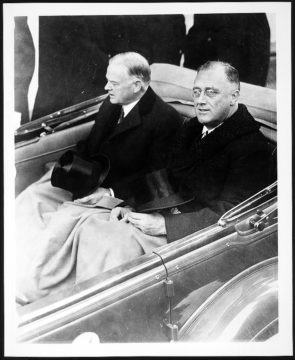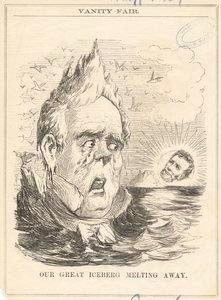by Michael Liss
 Adlai Stevenson, in the concession speech he gave after being thoroughly routed by Ike in the 1952 Election, referenced a possibly apocryphal quote by Abraham Lincoln: “He felt like a little boy who had stubbed his toe in the dark. He said that he was too old to cry, but it hurt too much to laugh.”
Adlai Stevenson, in the concession speech he gave after being thoroughly routed by Ike in the 1952 Election, referenced a possibly apocryphal quote by Abraham Lincoln: “He felt like a little boy who had stubbed his toe in the dark. He said that he was too old to cry, but it hurt too much to laugh.”
Stevenson got over it sufficiently to try again in 1956 (he stubbed a different toe, even harder), but the point remains the same. Losing stinks. Having to be gracious about it also stinks. So, it’s not unreasonable to assume that having to be gracious about it when you are the incumbent stinks even more, but that’s the job. The country has made a choice, and (let us keep our eyes firmly planted in the past for now), it is incumbent on the incumbent to cooperate, even if it is not required that he suddenly adopt the policies of his soon-to-be successor.
Last month, I wrote about the fraught transition from Buchanan to Lincoln, which ended with secession and, shortly after Lincoln’s Inauguration, led to the Civil War. Lincoln, and all that he represented, was clearly anathema to Buchanan, who, when he got up the nerve, acted accordingly. This month, I’m turning to the potent clashes of ideology and ego that went into the transition between Herbert Hoover and Franklin Delano Roosevelt.
Hoover was once one of the most admired men in the world. He had earned that through his service in World War I, first by aiding thousands of American tourists stranded in Europe, then, as Chairman of the Commission for Relief in Belgium, by helping to feed millions of people. He returned home in 1917 to take a role as Food Administrator for the United States, and, without much statutory authority, accomplished logistical feats on food supply and conservation. Woodrow Wilson sent him back to Europe to head the American Relief Administration, where he led economic restoration efforts after the war’s end, distributed 20 million tons of food to tens of millions across the continent, rebuilt communications, and organized shipping on sea and by rail. His efforts were so extraordinary that streets were named after him in several European cities. Read more »

 November 6, 1860. Perhaps the worst day in James Buchanan’s political life. His fears, his sympathies and antipathies, the judgment of the public upon an entire career, all converge into a horrible realty. Abraham Lincoln, of the “Black Republican Party,” has been elected President of the United States.
November 6, 1860. Perhaps the worst day in James Buchanan’s political life. His fears, his sympathies and antipathies, the judgment of the public upon an entire career, all converge into a horrible realty. Abraham Lincoln, of the “Black Republican Party,” has been elected President of the United States.